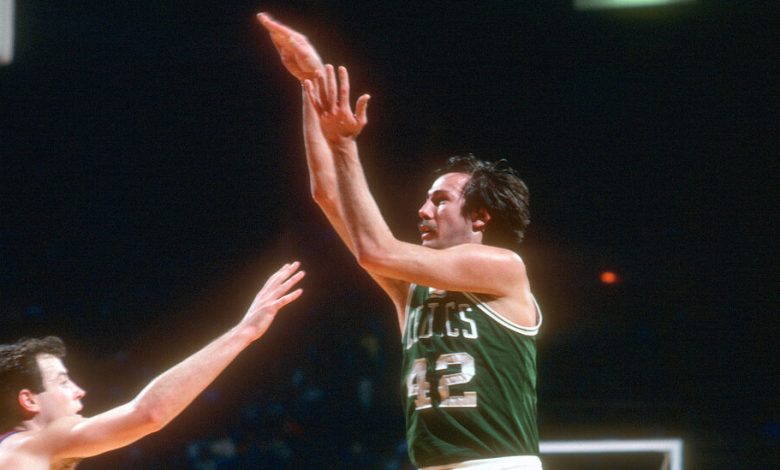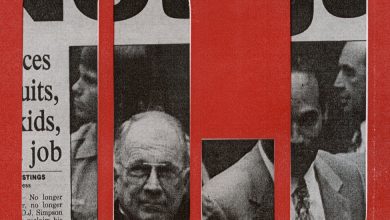Chris Ford, Who Made a 3-Point Mark in the N.B.A., Dies at 74

Chris Ford, who played guard for the Boston Celtics when they won the 1981 N.B.A. championship and later coached the team along with two others in the N.B.A., but who was perhaps best remembered for making the first 3-point shot in the league’s history, died on Tuesday. He was 74.
Ford’s family announced his death through the Celtics but did not provide details. The Press of Atlantic City reported that he died in Philadelphia after having a heart attack this month.
The N.B.A. instituted the 3-pointer in its 1979-80 season, borrowing the idea from the former American Basketball Association, which had merged with the N.B.A. in 1976. On Oct. 12, 1979, the opening night of the season, Ford was behind the arc when he caught a pass from guard Tiny Archibald and shot the basketball over the outstretched hand of the Houston Rockets’ Robert Reid with 3 minutes 48 seconds left in the first quarter.
But Kevin Grevey of the Washington Bullets also hit a 3-point shot that night, in another early-evening game, against the Philadelphia 76ers. After that game, a reporter told Grevey that he had “just set a record that would never be broken,” according to an account by The New York Times in 2021.
Three nights after those season-openers, the N.B.A. issued a news release saying that Ford was, in fact, the 3-point pioneer, since the Celtics-Rockets game had started 35 minutes before the Bullets-Sixers matchup. Still, it was unclear at what exact time of the evening each 3-point basket was made.
The three-pointer went on to become perhaps the most dominant offensive weapon used in the N.B.A.
Ford joined the Celtics early in the 1978-79 season in a trade with the Detroit Pistons. He played with Boston through the 1981-82 season. After serving as an assistant coach with the Celtics, he was the team’s head coach for five seasons in the 1990s. He later coached the Milwaukee Bucks and the Los Angeles Clippers.
Christopher Joseph Ford was born on Jan. 11, 1949, in Atlantic City, N.J. He helped take Villanova to three N.C.A.A. tournament appearances, including a trip to the 1971 national championship game, where the Wildcatslost to U.C.L.A., coached by John Wooden.
At 6 feet 5 inches, Ford was tall for a guard of his era. He averaged 15.8 points a game during his collegiate career and was selected by the Detroit Pistons in the second round of the 1972 N.B.A. draft.
In his first season with the Celtics, Ford averaged what became a career-high 15.6 points a game and was voted the team’s most valuable player. He averaged 9.2 points a game with 3.4 assists for his N.B.A. career. He was an assistant coach for the Celtics for seven seasons under their former guard K.C. Jones, and then succeeded Jimmy Rodgers as the team’s head coach. Ford held the post from the 1990-91 season to 1994-95 season. He compiled a 222-188 record with four playoff appearances.
He was the head coach of the Milwaukee Bucks from 1996 to 1998, and of the Los Angeles Clippers from 1998 to 2000. He began the 2003-4 season as an assistant coach for the 76ers and coached the final 30 games of that season after Coach Andy Ayers had been fired.
According to The Boston Globe, Ford is survived by his wife, Kathy; their children, Chris Jr., Katie, Anthony and Michael; and seven grandchildren.
Kevin Grevey said he did not revisit the possibility that it was he, not Ford, who had made the N.B.A.’s first 3-pointer until more than a decade after those games, when he ran into the reporter who had told him in October 1979 that he had made history.
Grevey said he would look into the matter further, but as he told The Times in 2021, “I swear I don’t care.”
But 3-pointers were hardly the only weapon that Ford had.
According to CBS Boston, Ford was reported to have dunked at least once on the Hall of Famer Julius Erving, one of the most famous dunkers in N.B.A. history, whose nickname was Dr. J. That inspired Ford’s teammates to give Ford a nickname of his own: “Doc.”




